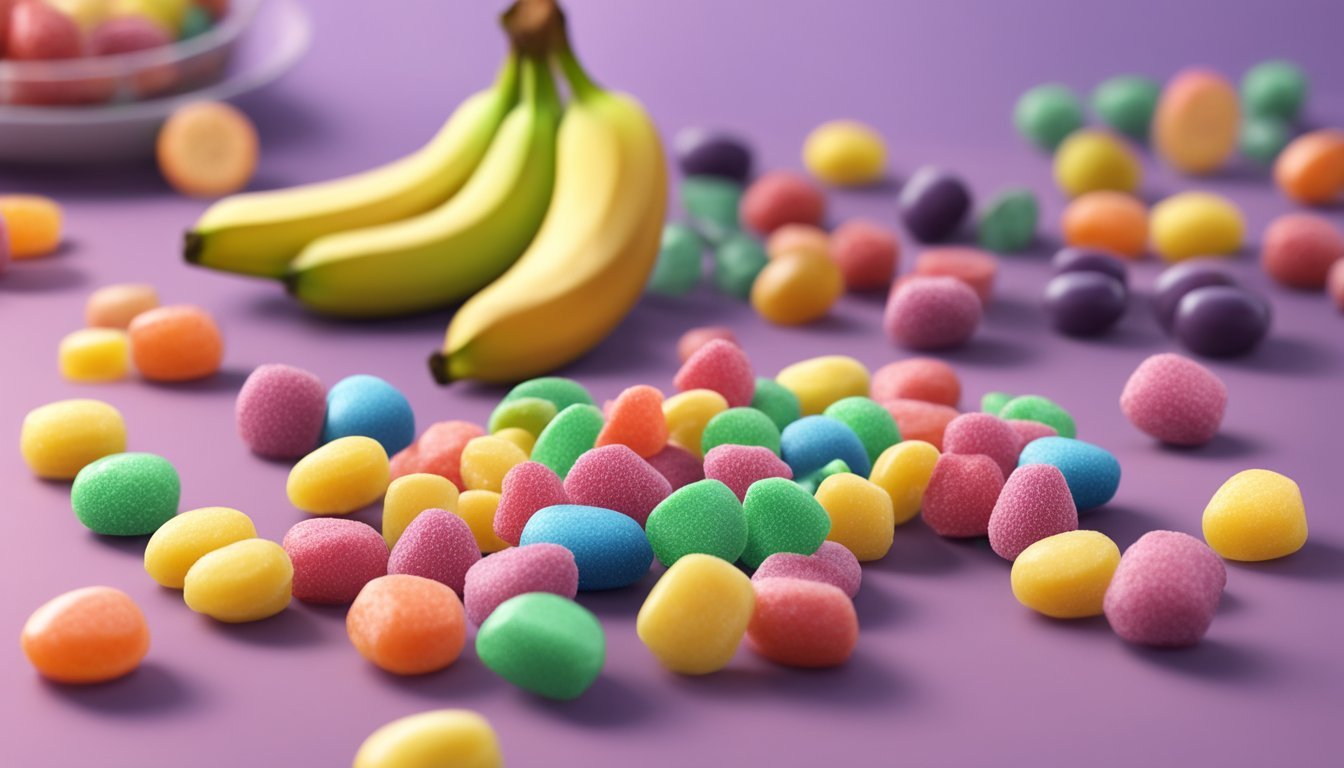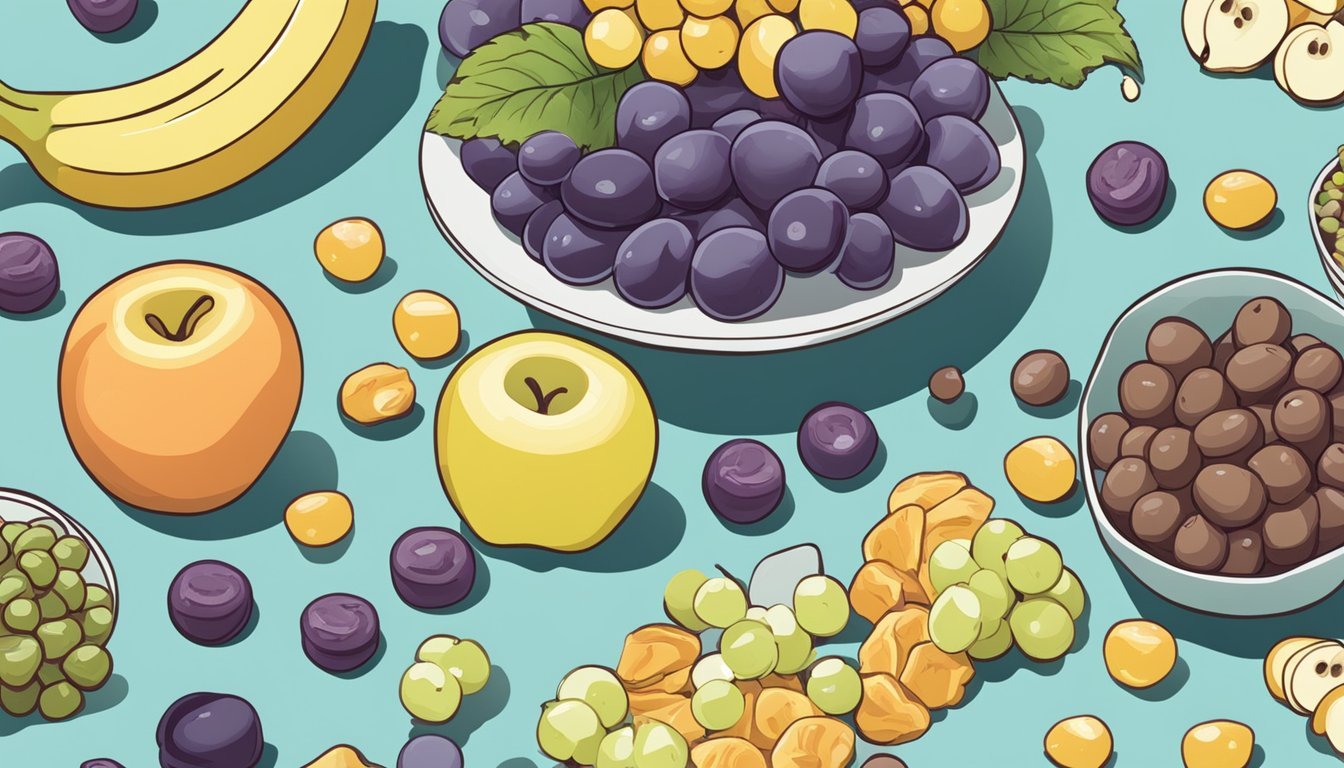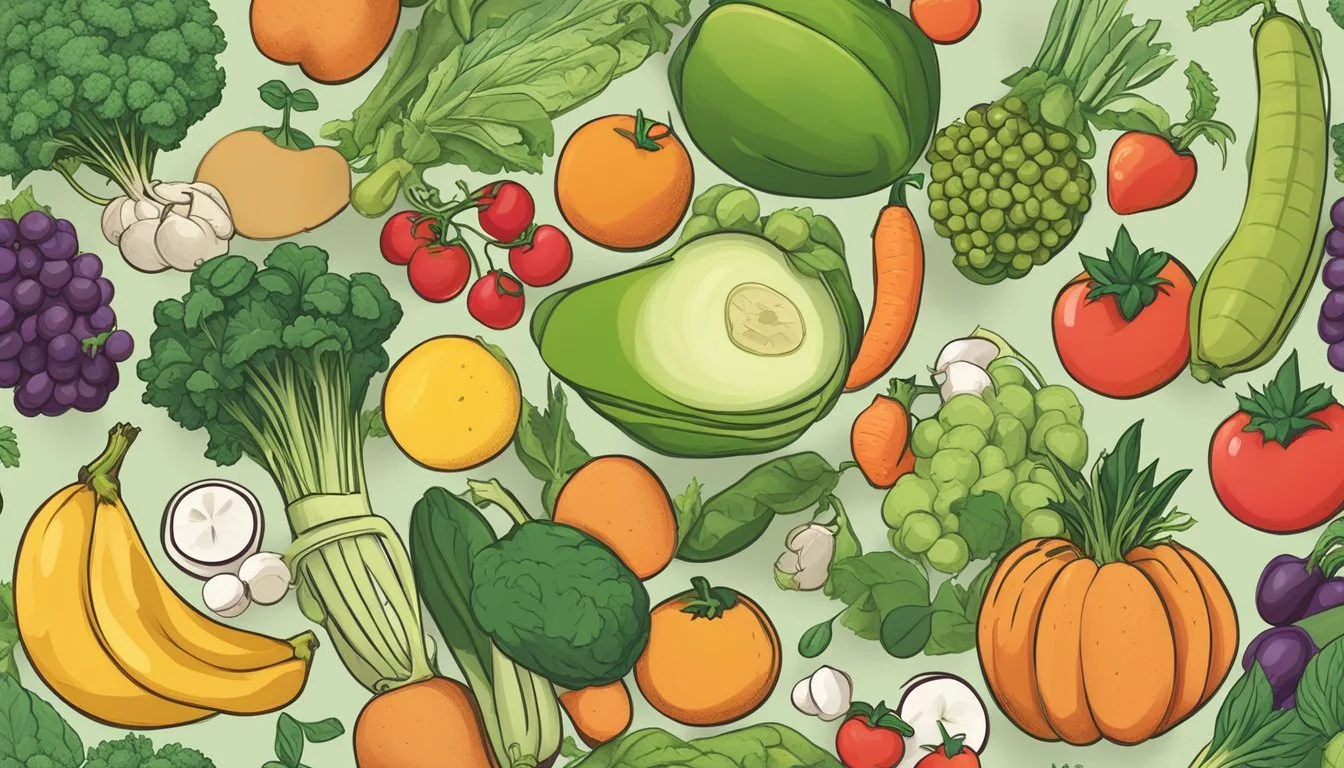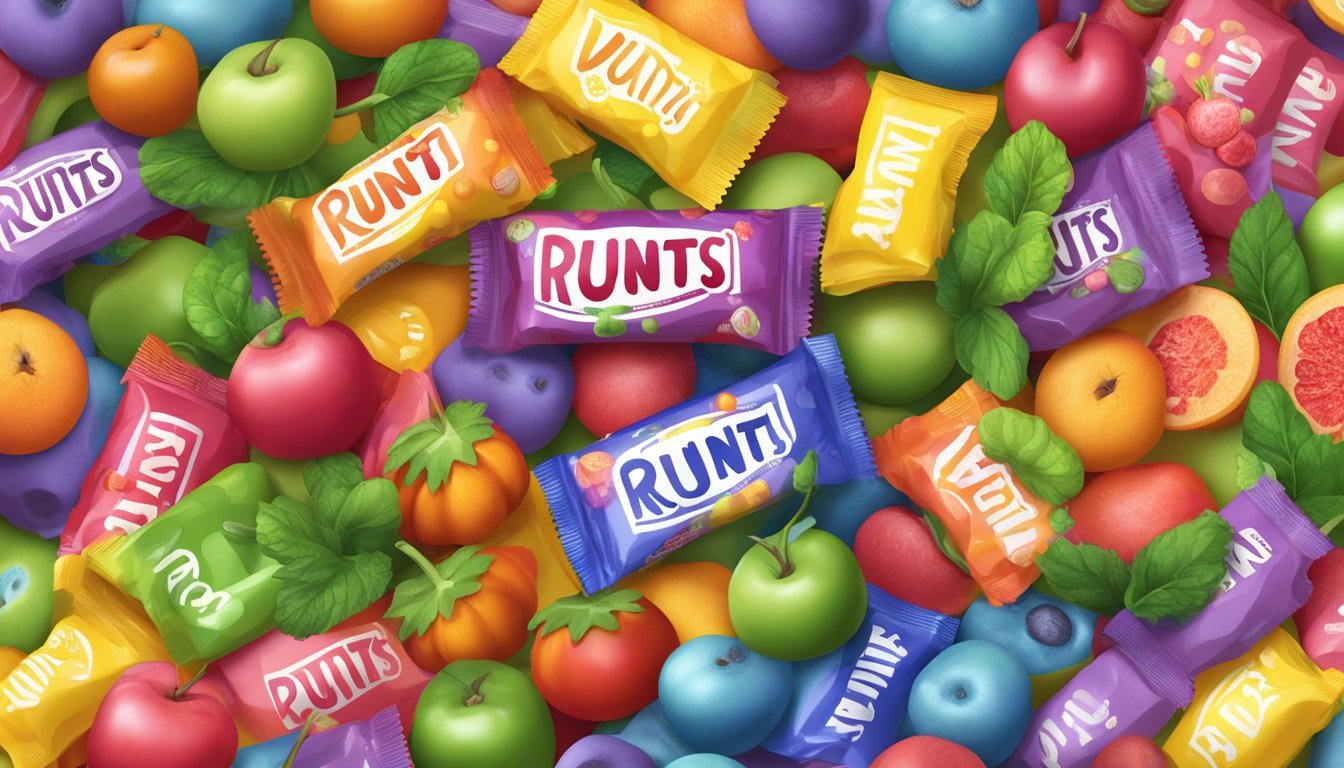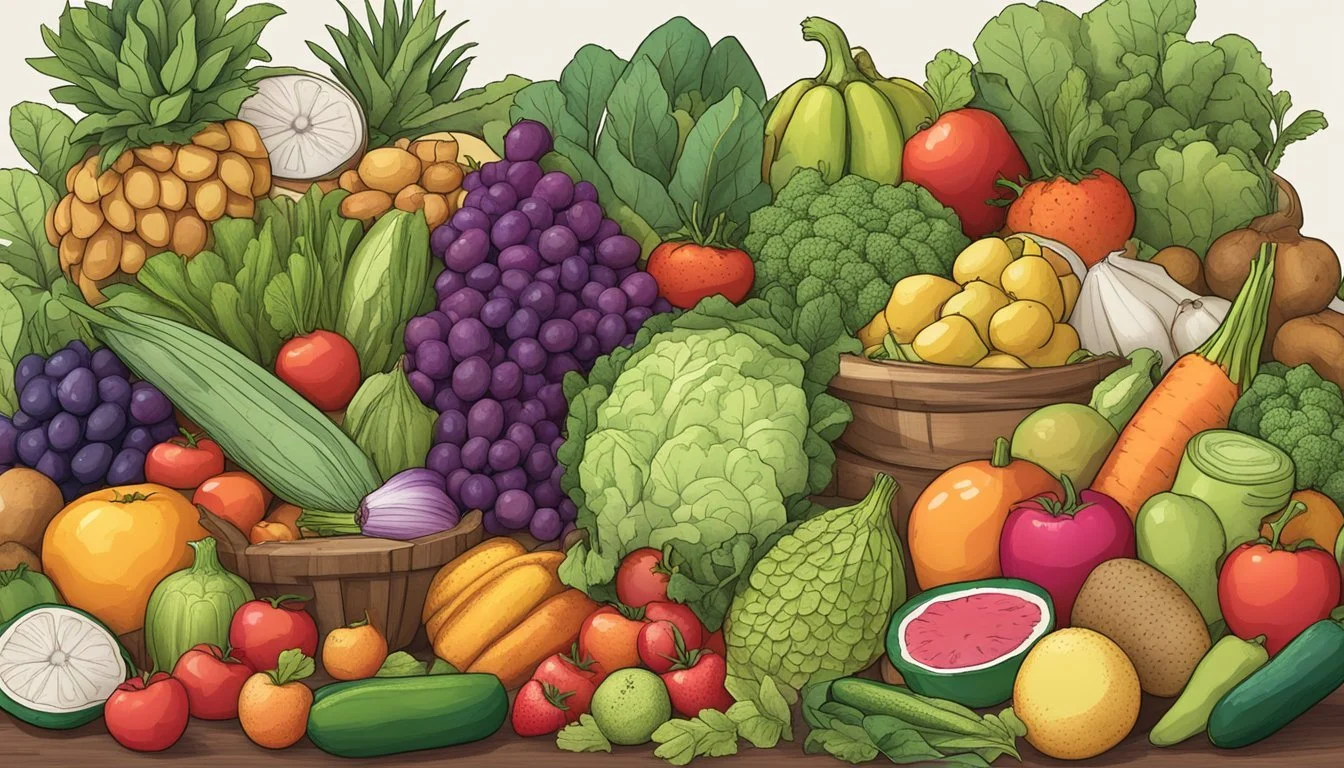Are Runts Vegan?
Uncovering the Truth About This Classic Candy
When considering a vegan lifestyle, assessing whether favorite treats align with plant-based dietary choices is a common concern. Runts, a popular candy known for its variety of fruit flavors and colorful presentation, has been a beloved confection since its debut in 1982. Vegan consumers particularly seek clarity on whether Runts fit into their animal byproduct-free diet.
The vegan status of a candy like Runts hinges on its ingredients and the manufacturing process. Generally, Runts are regarded as vegan-friendly as they do not contain traditional animal-derived ingredients such as gelatin, dairy, or eggs. However, it is important for consumers to be vigilant and scrutinize ingredient lists, as some versions or regions might have different formulations, and ingredients like carmine, a colorant derived from insects, can affect the vegan status of the product.
As with any manufactured food product, changes in recipes or discrepancies between information sources can make it challenging to determine with absolute certainty the vegan status of a product like Runts. Thorough examination of packaging labels and reaching out to manufacturers for up-to-date information remains the most reliable approach for vegans ensuring their candy of choice aligns with their ethical and dietary principles.
Overview of Runts Candy
Runts candy is a vibrant and fruit-flavored confectionery known for its nostalgic appeal and distinctive fruit shapes. This section explores the rich history and defining characteristics of Runts candy.
History of Runts
Runts candy was introduced by the Nestlé Company's Candy Division, gaining quick popularity thanks to its bright colors and fruit shapes. Designed to mimic real fruit, Runts cater to a variety of taste preferences with flavors such as banana, orange, cherry, strawberry, and grape.
Characteristics of Runts
Flavors: Runts candy is appreciated for an assortment of fruity flavors:
Banana
Orange
Cherry
Strawberry
Grape
Green apple (joined the original lineup after its inception)
Shape and Size: The candy pieces are small and shaped to resemble the fruits that correlate with their flavors, enabling a playful and visually unique experience.
Understanding Veganism
Veganism is more than just a diet; it's a lifestyle choice that excludes the use of animal products and byproducts. Individuals adopt a vegan lifestyle for various reasons, including ethical concerns, health considerations, and environmental preservation.
Definition of Vegan
A vegan is someone who consciously avoids all forms of animal exploitation and cruelty, whether for food, clothing, or any other purpose. Their diet excludes all animal-derived ingredients, such as:
Meat: Including beef, pork, poultry, and game.
Dairy: Such as milk, cheese, butter, and yogurt.
Eggs: From chickens, ducks, or any other birds.
Honey: Though naturally produced by bees, it is considered an animal product.
In practice, veganism encourages the development and use of alternatives to these products to benefit personal health, animal welfare, and the environment.
Common Non-Vegan Ingredients
Hidden animal products are prevalent in many foods and goods, catching inexperienced vegans off-guard. Some common non-vegan ingredients to be aware of include:
Gelatin: A protein derived from animal skin, bones, and connective tissues, often found in candies, marshmallows, and desserts.
Casein: A milk protein commonly present in many dairy substitutes, which can be confusing for those new to veganism.
Albumen: The egg white protein that sometimes appears in baked goods and pastas.
Whey: A by-product of cheese making from milk, frequently added to protein powders and other dietary supplements.
Vegans should closely read labels and be aware of these and other hidden ingredients to maintain adherence to their ethical and dietary choices.
Ingredients Breakdown
When assessing whether Runts are suitable for vegans, one must scrutinize their ingredients for any animal-derived components. This section provides a detailed overview of the ingredients used in Runts, highlighting those which may raise concerns for individuals following a strict vegan diet.
Runts Ingredients List
Runts have a variety of ingredients, which are primarily artificial in nature. The common ingredients found in all flavors of Runts include:
Sugar: A sweetening agent
Dextrose: Another form of sugar from corn
Corn Syrup: A sweetener derived from cornstarch
Calcium Stearate: An anti-caking agent
Carnauba Wax: Used for coating and shining the candies
Natural and Artificial Flavors: Flavors derived from various sources
The candies also contain a number of artificial colors to give them their vibrant appearance:
Blue 1 and Blue 2 Lake
Red 40 Lake
Yellow 5, Yellow 5 Lake
Yellow 6
Potential Non-Vegan Ingredients
While the main ingredients in Runts seem vegan-friendly, there are a few additives that warrant closer examination:
Carnauba Wax: Although plant-based, it is sometimes processed with animal products.
Artificial Colors: These may be tested on animals, which some vegans may find objectionable.
Carmine: A colorant derived from insects, not present in all Runts but used in some formulations.
Natural vs Artificial Flavors
Natural flavors can come from both plant and animal sources, which makes it important for vegans to confirm the origin. Artificial flavors are chemically synthesized and generally do not contain animal ingredients. However, vegans should be aware of the potential ethical concerns regarding animal testing associated with artificial additives.
Vegan-Friendly Candy Alternatives
For those looking to indulge in sweets without animal-derived ingredients, several well-known candy brands offer vegan options. These alternatives cater to a plant-based lifestyle while providing a variety of flavors and treat types.
Popular Vegan Candy Brands
Skittles: Once containing gelatin, Skittles have since changed their recipe and are now vegan-friendly, providing chewy, fruit-flavored treats without any animal derivatives.
Sour Patch Kids: The classic sour-then-sweet candies known as Sour Patch Kids are suitable for vegans. They do not contain gelatin or other animal products.
Swedish Fish: Soft and chewy, Swedish Fish are a gelatin-free candy making them an ideal option for those following a plant-based diet.
Airheads: These brightly colored, tangy, chewy taffy bars are free from animal products, which allows vegans to enjoy them without concern.
Nerds: Both tangy and crunchy, Nerds do not contain gelatin or other animal ingredients, which makes them another sweet vegan selection.
Smarties (U.S.): In the United States, Smarties are free from animal products, ensuring that these disc-shaped candies can be enjoyed by vegans.
Jolly Rancher Hard Candy: The hard candies by Jolly Rancher do not contain gelatin, making most of their flavors acceptable for a vegan diet.
Twizzlers: These licorice-style, chewy candies are gelatin-free, but their vegan status might vary depending on the types of sugar and processing aids used.
Ingredients to Look for in Vegan Candy
When screening for vegan candy, consumers should examine the ingredients list. Here are some key ingredients to consider:
Gelatin: This animal-derived product is commonly found in gummy candy and marshmallows, but vegan candies avoid Gelatin altogether.
Confectioner's Glaze: Often derived from shellac, which is made from lac bug secretions, it is avoided in vegan candies.
Carmine Color: This red dye is derived from cochineal insects and is not present in vegan candies.
Bone Char: Used in the processing of some sugars to achieve a pure white color, this ingredient is avoided in vegan candy as it is derived from animal bones.
To maintain a vegan diet, one should always ensure to read the labels carefully and choose candies with plant-based or synthetic ingredients.
Allergens and Dietary Considerations
When considering Runts candy in terms of allergens and dietary restrictions, it is essential to address two crucial aspects: the gluten content and the overall impact on special diets that may include vegetarianism or gluten sensitivity.
Gluten Content in Candy
Runts are primarily known to be free from gluten-containing ingredients. Gluten is a group of proteins commonly found in wheat, barley, and rye, and it poses a concern for those with celiac disease or gluten sensitivity. For individuals adhering to a gluten-free diet, Runts can be considered a safe option as they do not list any gluten-based products in their ingredients.
Impact on Special Diets
Runts, while being suitable for a vegetarian diet, may warrant caution for consumers with specific dietary restrictions. Vegetarians can consume Runts, taking solace in the fact that they do not contain animal-based ingredients. However, individuals with food allergens, particularly to components such as artificial colors and additives found in many candies, should approach Runts with the same level of care they apply to all other foods within their dietary framework. Due to the potential presence of allergens, it is essential for individuals with allergies to review the ingredients list thoroughly before consumption.
Ethical and Environmental Aspects
In examining Runts candy through the lens of veganism, it is imperative to consider both the environmental impact of its production and the ethical implications of ingredient sourcing. These factors determine whether the candy aligns with vegan-friendly practices that prioritize animal welfare and ecological sustainability.
Environmental Impact of Candy Production
The production of candy, including Runts, often incurs significant environmental costs. Energy consumption, water usage, and greenhouse gas emissions are critical factors here. The manufacturing process may involve:
Energy-intensive machinery to shape, cook, and package the product.
Water usage for cleaning and as an ingredient, leading to concerns about water conservation and wastewater management.
Ethical Considerations in Ingredient Sourcing
The sourcing of ingredients for any food product, including Runts, raises ethical questions particularly relevant to vegans. Ingredients should be scrutinized for:
Animal products: Vegans avoid all forms of animal exploitation; therefore, any use of gelatin (usually derived from animals) or other animal-based products would render the candy non-vegan.
Labor practices: Ethical sourcing also implies fair labor conditions for those involved in producing ingredients.
Vegan certifications: Certifications can verify a product's adherence to vegan standards, confirming no animal products or by-products were used in manufacturing and that cross-contamination is minimized during the production process.
Consumer Considerations
When evaluating whether Runts are suitable for a vegan diet, consumers often look beyond just the ingredients. They also consider the packaging and marketing strategies employed by the brand, and the availability of the product in various locations.
Packaging and Marketing
Runts candy, known for its colorful presentation and fruit shapes, often employs vibrant packaging that catches the eye. Consumers should be aware that the branding may not always highlight the vegan aspect explicitly. It's important to read labels carefully to ensure that the product aligns with vegan standards. Marketing tactics can include placement in vending machines and movie theater concession stands, which are popular during road trips and outings but may not provide detailed product information at a glance.
Availability and Purchase Locations
Runts are widely available, and consumers can purchase them at various locations. They are commonly found in:
Convenience stores: A staple in the candy aisles, often near the register.
Supermarkets: Located in the candy section, sometimes with an indication of being vegan-friendly.
Vending machines: Especially in public spaces like malls or transport stations.
Online retailers: Where detailed product descriptions and ingredient lists are more accessible.
For vegans, accessibility makes Runts a convenient candy choice during travel or simply as a treat while watching a movie at the theater. Always check the most current product formulation wherever you decide to purchase, as ingredients and packaging could change.
Conclusion
Runts candy, recognized for its vibrant colors and fruit shapes, represents a nostalgic sweet treat. With changing consumer preferences and dietary needs, particularly within the vegan community, the question of whether Runts are suitable for a plant-based diet arises.
Ingredients Analysis: Runts do not contain obvious animal-derived ingredients such as gelatin, dairy, or eggs, making them a seemingly viable option for those following a vegan lifestyle. Ingredients typically play a critical role in the evaluation of any product's vegan status.
Manufacturing Processes: It is important for consumers to note that despite the absence of animal ingredients, manufacturing processes may influence a product's vegan suitability. Cross-contamination with non-vegan items during production could occur, and this should be considered especially by individuals with stringent vegan practices.
Brand Variations: Potential variations between different brands or regions may result in different ingredient formulations. Thus, it is essential for vegans to examine the specific product labels to ensure compliance with their dietary standards.
Conclusion: In light of the ingredients listed, Runts can generally be considered vegan-friendly. However, vegans are advised to review the latest product details and manufacturing practices to confirm this assessment, especially as formulations can change over time.
For those committed to plant-based diets in search of clear-cut options, numerous vegan-friendly candy alternatives exist, with brands like YumEarth offering a range of sweets tailored to vegan requirements.



